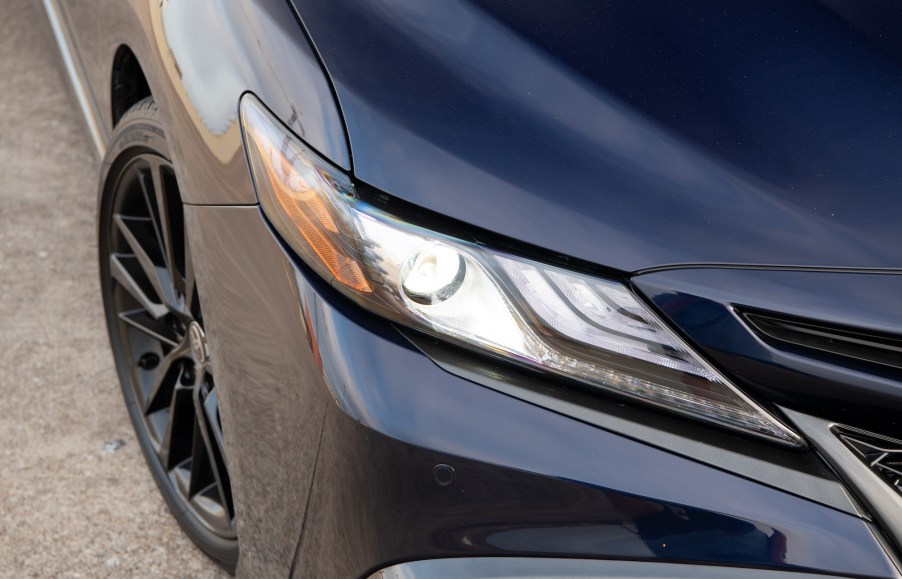
Is This Really the Toyota Camry’s Answer to Crossover SUVs?
Midway through last year, Toyota offered a new option for its best-selling sedan, the Camry. For the first time in decades, the car company announced all-wheel drive was available for most 2021 Camry trim levels. This puts the popular car in a different category from most other sedans. But it’s likely Toyota was angling to offer a tempting alternative to crossover SUVs. Did the move work?
Toyota reintroduced the AWD Camry last year
According to Toyota, not many sedans are available with all-wheel drive unless you’re looking at luxury models. But halfway through last year, the brand decided to change that fact by adding another drivetrain to the 2021 Camry’s offerings.
All Camry trims come standard with front-wheel drive, but now most also offer AWD. This includes all four-cylinder models — the LE, SE, SE Nightshade Edition, XLE, and XSE. AWD isn’t available for the TRD, XLE V6, XSE V6, or any of the sedan’s hybrid versions.
The addition of all-wheel drive doesn’t even seem to make a big dent in fuel efficiency, one of the Camry’s selling points. AWD drops the average gas mileage by only about 1 mpg.
The automaker knows the Camry is the top-selling midsize sedan. Because it’s already crushing the competition in its class, why did Toyota make this move?
Can the Toyota Camry compete with crossover SUVs?
A Camry with all-wheel drive isn’t unheard of. According to Car and Driver, Toyota offered the option on Camry models from 1988 to 1991. This era was full of sedans offering AWD, such as the Mitsubishi Galant, Honda Civic, and Ford Tempo.
But when SUVs hit the market, they quickly became the vehicle of choice for people who wanted better traction. Sedans with that feature went the way of the dinosaur.
These days, only a few sedans offer AWD, such as the Subaru Legacy and Nissan Altima. The option’s revival for the Camry probably isn’t a bid to compete with these sedans. Instead, Toyota seems to be targeting crossover SUV buyers with a moderately priced alternative.
With a 2.5-liter four-cylinder engine, the all-wheel-drive Camry isn’t as powerful as most SUVs. But for a family car, it offers an upgrade in handling icy or slippery conditions without leveling up in size or price to a crossover SUV.
Did the move work?
Because the Toyota Camry is already dominating the midsize sedan segment, if the new options made any inroads in the crossover SUV market, sales should show a sizable bump. All-wheel drive has been available in the Camry for about a year, so what do the numbers show?
A look at the sales figures tells us the results are a bit unclear. After all, the big change came in the early months of the pandemic. As with many industries, coronavirus had far-reaching effects on auto sales across the board.
In this environment, the introduction of the AWD Camry option didn’t boost sales, GoodCarBadCar shows. In fact, sales dropped quite a bit, but it’s impossible to know what the response would have been in a normal year.
2021 Camry sales look pretty good to this point, and it’s possible that the AWD option could still improve sales. But so far, it doesn’t seem to have made a dent in the crossover SUV market.


